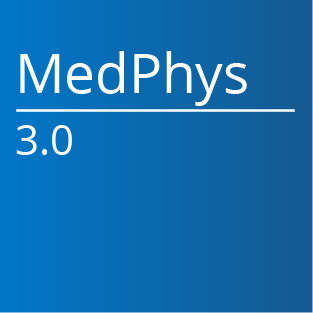Weddle's Syndicated Content:
How to Compete with Employed Job Seekers
It's hard enough to land a good job in today's sputtering economy, but now it's going to get even harder. More and more people who already have a job have started to enter the job market. They're amping up the competition and creating a new challenge for those who are out of work: how do you compete with employed job seekers?
Employed job seekers often have an unfair edge in the job market. The fact that they currently have a job gives them a "credibility premium" with employers. Consciously or not, many organizations assume that anyone good enough to be on another employer's payroll is probably good enough to be on theirs. It's a significant advantage and one you simply cannot match if you're in transition.
Does that mean you're out of luck and doomed to remain out of work? Absolutely not. You can undercut an employed job seeker's advantage by using the one advantage that you have and they don't - the capacity to do what's best for you. That's an edge that working people simply cannot match.
How does that advantage work in your favor? As a person in transition, you have:
- the time to add 2 kinds of skills that will upgrade the expertise you offer to employers;
- the flexibility to network in 2 venues that will expand your visibility in your field;
and- the freedom to brand yourself in 2 ways that will enhance your occupational standing.
Let's look at each in a bit more detail.
The Time to Add 2 Types of Skills
The most valuable candidate in today's job market is a person who is both an expert in their primary field and able to apply that expertise in a wide range of work situations. Therefore, a person in transition can gain an advantage if they enroll in 2 kinds of training or academic courses during their job search: one that will put them at the leading edge of knowledge and skills in their occupation and a second that will add an ancillary skill that expands their range of contribution. An employed job seeker seldom has the time to do either, let alone both.
So, enroll in the appropriate classes and then feature them on your resume. Those entries convey two messages that act like catnip for employers. First, they signal that you are a person who understands the importance of continuously adding expertise. And second, they indicate that you are someone who takes personal responsibility for doing so.
The Flexibility to Network in 2 Venues
The conventional wisdom is that 30 percent or more of all open jobs are never advertised. They are typically filled by networking. Therefore, a person in transition can gain an advantage if they commit to active networking and then perform that networking in 2 places: one that will expand their visibility among their peers generally and a second that will do so among those who are members of their professional society or trade association. An employed job seeker seldom has the flexibility to do either, let alone both.
So, commit yourself to networking, but do it in the right way. First, the word is netWORK, not net-get-around-to-it-whenever-it's-convenient. Make networking an integral part of daily job search activities. Second, practice the Golden Rule of Networking and "give as good as you get." Be helpful to others if you want others to be helpful to you.
The Freedom to Brand Yourself in 2 Ways
The biggest threat to employers today is competitors with smart workers. Their only defense is to hire those who are standouts in their field. Therefore, a person in transition can gain an advantage if they build their brand in 2 ways: by sharing their professional knowledge and experience at blogs or online discussion groups that are occupation-related (not focused on job search) and by holding office in or otherwise contributing to their state or national professional society or trade association. An employed job seeker seldom has the freedom to do either, let alone both.
So, set yourself apart from the herd. First, make sure you haven't subconsciously accepted the view that you are flawed. Take the time to reinforce (or regain) your self-respect and self- confidence. Second, get up and go to work each day, shaping an exceptional image of yourself among your peers and their employers.
Employed job seekers seem to have all of the advantages in the job market. They don't. Those who are in transition have their own advantages that provide 2 powerful benefits. They can level the playing field and give those who use them a powerful competitive edge.
Thanks for reading,
PeterVisit my blog at Weddles.com/WorkStrong.
December 2012
© Copyright 2012 WEDDLE’s LLC. All Rights Reserved.



















